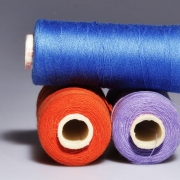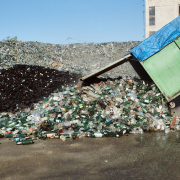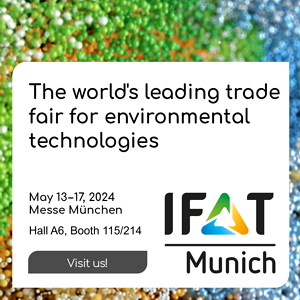Indonesia: Priority Is on Waste-To-Energy
Approximately 70 percent of the 64 million tons of solid waste generated in Indonesia each year is sent to substantially unsanitary landfills. According to researchers
and media, the recycling rate is about 2 percent (in urban regions: 7.5 percent). This situation is set to change.
“Waste management has always posed an issue in the country”, Brurce Muhammad Mecca, junior researcher at the Indonesian Institute for Energy Economics, wrote in “The Jakarta Post” at the beginning of February this year. As reported, two years ago Jakarta – Indonesia’s capital and most populous city (more than 9.5 million inhabitants) – had produced 7,500 tons of waste each day and dumped 6,700 tons at the Bantar Gebang dumpsite in Bekasi, West Java, which is said to reach its capacity by 2019. “In February 2005, the Leuwi Gajah dumpsite in Cimahi, West Java, experienced a landslide that buried 71 houses and killed 143 people. In Bandung, West Java, a waste-fired power plant project has run up against many legal problems and is predicted to be canceled”, the author described the situation. “The government seems to have a lot of homework to do before making the Indonesia Waste-Free 2020 dream a reality.”
“Aware of this problem, the government has picked Waste to Energy (WTE) technology to help tackle the complex waste issue”, Brurce Muhammad Mecca informed in February. According to the author, the Indonesian government has introduced many policies from the president and ministries down to local authorities to accelerate the application of waste-to-energy facilities in seven cities: Jakarta, Tangerang, Bandung, Surabaya, Surakarta, Makassar and Semarang. “The top executive order is Presidential Regulation (Perpres) No. 18/2016 on the acceleration of the development of waste-based power plants or incineration. However, this regulation was annulled by the Supreme Court a few weeks ago, following a request by various civic groups stating that incinerators were dangerous for health and the environment. It is actually a known fact that incinerators can cause serious damage due to their hazardous residue and toxic fumes, if not managed properly. Despite the Supreme Court’s move, the government is staying the course.”
As reported by “The Jakarta Post” in 2015, the Indonesian Directorate General for New Renewable Energy and Energy Conservation of the Energy and Mineral Resources Ministry, with support from the EU-Indonesia Trade Cooperation Facility (TCF), was preparing a waste-to-energy (WTE) guidebook (published at www.euind-tcf.com) providing a way to realize WTE projects in Indonesia. The guidebook was part of a project jointly implemented by the ministry and the TFC, a four-year EU-supported project (which was completed in 2016) partnering with Indonesian government organizations to enhance economic development through trade and investment.
Danish-Indonesian collaboration
According to the Ministry of Foreign Affairs of Denmark, Indonesia is the country that dumps the second-most plastic into the oceans, after China. A new Danish-Indonesian collaboration has been convoked in order to change this situation; the ministry has launched a new inter-agency cooperation for water and waste in Indonesia. “In this way we can help to reduce the discharge of waste into the world’s oceans, while also enabling Danish companies to earn money from Indonesian waste,” the Danish Minister for Development Cooperation Ulla Tørnæs was quoted, who was visiting Indonesia in May this year.
The new cooperation focuses on waste management, recycling and the conversion of waste into energy. As reported, Danish authorities shall inspire and exchange experiences with the Indonesians on waste policy and management, as well as public regulations such as charging for plastic bags and recycling and deposit systems. In Indonesia, Danish solutions would be appreciated.
According to the information provided by the ministry, Danish companies such as Desmi, Dong Energy, Rambøll, Grundfos, Babcock & Wilcox Vølund and the Danish Environmental Protection Agency have already been to Jakarta and presented solutions to the problem of plastic pollution to the local authorities and the World Bank. Furthermore, Danish companies have been involved in pilot studies as part of Denmark’s environmental program, which aims at replacing coal with household waste and converting landfill gas into electricity. “The inter-agency cooperation involves Denmark sending a Danish growth consultant with expert knowledge in the field of water and waste to the Danish embassy in Jakarta to initiate a close collaboration between the Ministry of Environment and Food in Denmark and the Danish Environmental Protection Agency and their Indonesian counterparts”, the ministry announced in May this year.
Invest in Indonesia
There are many reasons and opportunities to invest in Indonesia. According to US-based sources, the environmental technologies market – including goods and services – is estimated at nearly 7 billion US-Dollar. Indonesia’s Investment Coordinating Board (BKPM = Badan Koordinasi Penanaman Modal) is the country’s investment one-stop service in which 22 ministries/institutions are integrated.
Interested companies can get detailed data at
www3.bkpm.go.id/en/investing-in-indonesia/bkpm-main-services
www3.bkpm.go.id/en/investment-procedures
www3.bkpm.go.id/en/investment-opportunities
____________________________
Waste-Free Indonesia by 2020
“In the National Mid-Term Development Plan for 2015-2019, the Government of Indonesia has set ambitious targets of reducing landfilling by 20 percent out of 124.6 million tons in 5 years in 380 cities”, the Danish company Babcock & Wilcox Vølund A/S quoted the Indonesian goal. The reduction efforts would consist of extended producer responsibility, 3R (reuse, reduce and recycle), increasing the number and capacity of recycling centers as well as waste banks. “The mid-term plan also sets a target of 75 percent managed waste or 97.8 million in 5 years in 380 cities. This target is to be achieved through better separation at sources, composting, urban farming and waste to energy.”
Recently the Government of Indonesia has launched a campaign of “Waste-Free Indonesia by 2020” and has also announced that marine plastic waste must be reduced with 70 percent from now to 2025, the company reported.
Photo: pixabay
GR 32017










